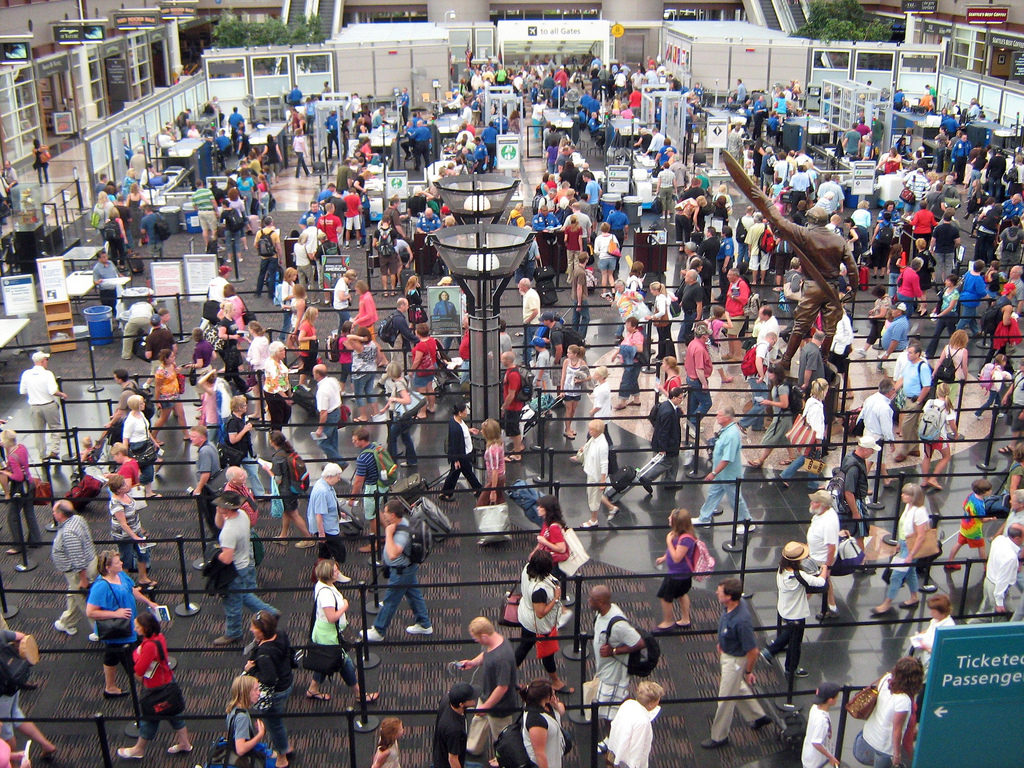For airline passengers waiting at the airport for their flight, if they are seen “fidgeting, sweating, trembling, staring,” or a number of other subtle expressions, they could be trailed and closely monitored by undercover air marshals as a part of a previously unknown Transportation Security Administration (TSA) program dubbed “Quiet Skies.”
Originally reported by The Boston Globe after an internal TSA bulletin was leaked in March by “anonymous sources within the department,” the program targets travelers who are not on any terrorist watch list or are under investigation by any law enforcement agency, but exude some type of questioning behavior. In a report from NPR, the TSA calls the program, “a practical method of keeping another act of terrorism from occurring at 30,000 feet.”
Air marshals are placed at many major U.S. domestic airports including Atlanta, Houston, Phoenix, Chicago, and Washington, D.C., with mainly domestic flights being subject to the program.
Small teams of armed, undercover marshals reportedly comb the nation’s airports looking for tell-tale signs of “suspicious behavior,” which are, but not limited to: foreign travel, changing clothes or shaving while traveling, abruptly changing direction while moving through an airport, sweating, trembling, blinking rapidly, using a phone or computer, talking to other travelers, using the bathroom, and sleeping, among many other behaviors. “Targets” are then observed, followed, and have notes taken on them by air marshals which are then relayed to TSA officials.
Michael Bilello, assistant administrator of public affairs for TSA, explained that after analyzing behavior and travel patterns, TSA officers pull intelligence reports from state and local law enforcement and federal and international agencies before deciding to assign an air marshal to tail an individual.
The program is designed to ignore people clearly traveling for business or to visit family, and focus on potential threats, said Bilello. Nevertheless, it has concerned many potential travelers.
“Thousands of unsuspecting Americans have been subjected to targeted airport and inflight surveillance,” The Boston Globe reported. Furthermore, passengers flagged in the Quiet Skies program remain on a list to be monitored for up to 90 days or three observed trips, whichever comes first.
TSA Spokeswoman Michelle Negron said the program, “doesn’t take into account race and religion, and it is not intended to surveil ordinary Americans.” Regardless, some air marshals have questioned the legality and efficiency of Quiet Skies.
“What we are doing [in Quiet Skies] is troubling and raising some serious questions as to the validity and legality of what we are doing and how we are doing it,” one air marshal wrote in a text message to colleagues, according to the report.
The Quiet Skies program may be somewhere in the Constitutional “gray area.” However, since privacy clause jurisprudence still unfolding in the modern era, it is unclear what could lead to a challenge after a “reasonable right to privacy” is abridged.

